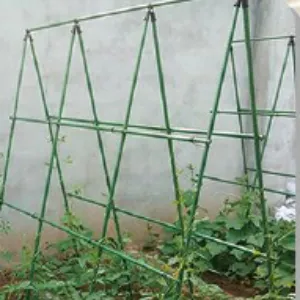-
Email:zhao@hyliec.cn
-
Tel:+86 311 85273988
-
WhatsAPP:8613931128750
-
 Afrikaans
Afrikaans -
 Albanian
Albanian -
 Amharic
Amharic -
 Arabic
Arabic -
 Armenian
Armenian -
 Azerbaijani
Azerbaijani -
 Basque
Basque -
 Belarusian
Belarusian -
 Bengali
Bengali -
 Bosnian
Bosnian -
 Bulgarian
Bulgarian -
 Catalan
Catalan -
 Cebuano
Cebuano -
 Corsican
Corsican -
 Croatian
Croatian -
 Czech
Czech -
 Danish
Danish -
 Dutch
Dutch -
 English
English -
 Esperanto
Esperanto -
 Estonian
Estonian -
 Finnish
Finnish -
 French
French -
 Frisian
Frisian -
 Galician
Galician -
 Georgian
Georgian -
 German
German -
 Greek
Greek -
 Gujarati
Gujarati -
 Haitian Creole
Haitian Creole -
 hausa
hausa -
 hawaiian
hawaiian -
 Hebrew
Hebrew -
 Hindi
Hindi -
 Miao
Miao -
 Hungarian
Hungarian -
 Icelandic
Icelandic -
 igbo
igbo -
 Indonesian
Indonesian -
 irish
irish -
 Italian
Italian -
 Japanese
Japanese -
 Javanese
Javanese -
 Kannada
Kannada -
 kazakh
kazakh -
 Khmer
Khmer -
 Rwandese
Rwandese -
 Korean
Korean -
 Kurdish
Kurdish -
 Kyrgyz
Kyrgyz -
 Lao
Lao -
 Latin
Latin -
 Latvian
Latvian -
 Lithuanian
Lithuanian -
 Luxembourgish
Luxembourgish -
 Macedonian
Macedonian -
 Malgashi
Malgashi -
 Malay
Malay -
 Malayalam
Malayalam -
 Maltese
Maltese -
 Maori
Maori -
 Marathi
Marathi -
 Mongolian
Mongolian -
 Myanmar
Myanmar -
 Nepali
Nepali -
 Norwegian
Norwegian -
 Norwegian
Norwegian -
 Occitan
Occitan -
 Pashto
Pashto -
 Persian
Persian -
 Polish
Polish -
 Portuguese
Portuguese -
 Punjabi
Punjabi -
 Romanian
Romanian -
 Russian
Russian -
 Samoan
Samoan -
 Scottish Gaelic
Scottish Gaelic -
 Serbian
Serbian -
 Sesotho
Sesotho -
 Shona
Shona -
 Sindhi
Sindhi -
 Sinhala
Sinhala -
 Slovak
Slovak -
 Slovenian
Slovenian -
 Somali
Somali -
 Spanish
Spanish -
 Sundanese
Sundanese -
 Swahili
Swahili -
 Swedish
Swedish -
 Tagalog
Tagalog -
 Tajik
Tajik -
 Tamil
Tamil -
 Tatar
Tatar -
 Telugu
Telugu -
 Thai
Thai -
 Turkish
Turkish -
 Turkmen
Turkmen -
 Ukrainian
Ukrainian -
 Urdu
Urdu -
 Uighur
Uighur -
 Uzbek
Uzbek -
 Vietnamese
Vietnamese -
 Welsh
Welsh -
 Bantu
Bantu -
 Yiddish
Yiddish -
 Yoruba
Yoruba -
 Zulu
Zulu
Choosing the Right Hinges for Your Gate Installation and Functionality
The Importance of Gate Hinges A Detailed Overview
When it comes to the functionality and security of gates, one of the most crucial components is the gate hinge. Though often overlooked, gate hinges play an essential role in ensuring that gates operate smoothly, securely, and efficiently. Whether for residential properties, commercial facilities, or agricultural settings, the right hinges can significantly enhance the performance and longevity of a gate.
Understanding Gate Hinges
Gate hinges are mechanical devices that connect the gate to its post or frame, allowing it to swing open and closed. Their design can vary widely depending on the type of gate, its size, and the material from which it is constructed. Common materials used for hinges include stainless steel, brass, and plastic, each offering unique properties and benefits.
There are several types of gate hinges available, each suited for different applications. The most common types are
1. Butt Hinges These are the standard hinges that consist of two plates attached on either side of the gate and the post. They are widely used for both residential and commercial gates. 2. Continuous Hinges Also known as piano hinges, these run the entire length of the gate, providing added strength and stability. They are ideal for heavier gates.
3. Self-Closing Hinges Typically used in pool gates or security gates, these hinges automatically pull the gate closed after it has been opened, improving safety.
4. Lift-off Hinges These allow the gate to be easily removed without having to unscrew the hinge. They are particularly useful for gates that need to be frequently taken down for maintenance or storage.
5. Spring Hinges These incorporate a spring mechanism that automatically closes the gate, making them suitable for high-traffic areas.
Key Considerations When Choosing Gate Hinges
When selecting hinges for a gate, several factors should be considered
gate hinges

- Weight and Size of the Gate Heavier gates require more robust hinge systems. Continuous hinges or heavier-duty butt hinges might be necessary for stability. - Material The material of both the gate and the hinge should match for optimal performance. For example, a wooden gate may require different hinges than a metal gate. Stainless steel is often preferred for outdoor applications due to its rust resistance.
- Environment Consider the environmental conditions where the gate will be installed. If the area is prone to moisture or extreme temperatures, corrosion-resistant hinges are recommended.
- Safety Features For gates that require added safety, especially in residential areas or around pools, self-closing or spring-loaded hinges are essential.
Maintenance of Gate Hinges
To ensure the longevity and performance of gate hinges, regular maintenance is necessary. This includes
- Lubrication Hinges should be periodically lubricated to prevent rust and ensure smooth operation.
- Inspection Regularly check for signs of wear, damage, or rust and replace any compromised hinges promptly.
- Cleaning Keeping hinges clean from dirt and debris can prevent premature wear and facilitate smoother movement.
Conclusion
In summary, while gate hinges may seem like simple components, their importance in the overall functionality and security of a gate cannot be overstated. By understanding the various types of hinges available and considering factors such as material and gate weight, you can make informed decisions that enhance the performance of your gate. Regular maintenance will help ensure that your hinges, and consequently your gates, operate effectively for years to come. Investing in high-quality gate hinges is an essential aspect of gate management that contributes significantly to the safety and convenience of any property.
-
Garden Fence on a Roll: Versatile Solutions for Outdoor Enclosure and Decoration
NewsAug.22,2025
-
Fence Post Varieties: Essential Components for Durable Enclosures
NewsAug.22,2025
-
Garden Fence Panels: Blending Functionality and Aesthetic Appeal
NewsAug.22,2025
-
Tools for Fence: Essential Equipment for Garden Fence Installation and Maintenance
NewsAug.22,2025
-
Fence and Gate Accessories: Enhancing Functionality and Durability
NewsAug.22,2025
-
Metal Plant Supports: Essential Structures for Healthy Plant Growth
NewsAug.22,2025
